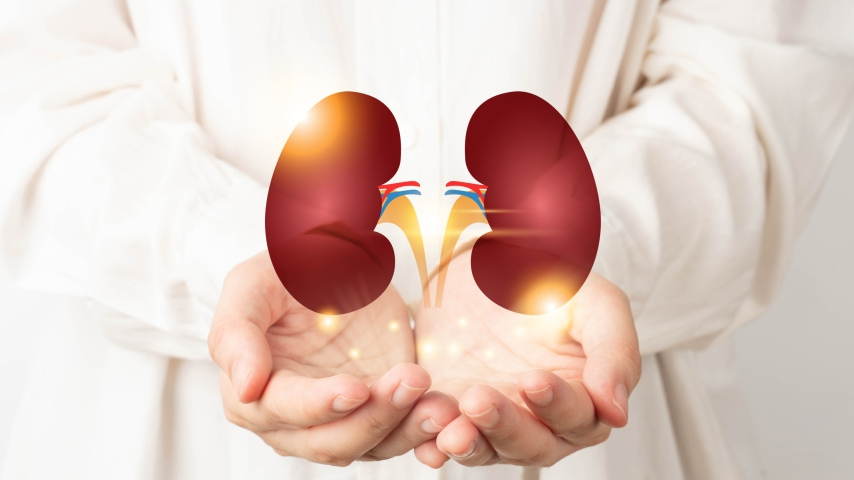List of Foods that Cause Kidney Stones

Kidney stones are small, solid mineral deposits that develop in the kidneys. They can vary in size, ranging from as small as a grain of sand to as large as a stone. The formation of kidney stones occurs when specific chemicals in the urine become highly concentrated and solidified. Classifying kidney stones is important for better understanding their characteristics and reducing associated risks. The following are the classifications of kidney stones:
1. Calcium Stones: These are the most common type of kidney stones and are primarily composed of calcium oxalate or calcium phosphate. High levels of calcium or oxalate in the urine can contribute to their formation.
2. Uric Acid Stones: Uric acid stones form when there is an excessive amount of uric acid in the urine. They are more likely to occur in individuals with conditions like gout or those who have a diet high in purines.
3. Struvite Stones: Struvite stones are typically caused by bacterial infections, particularly urinary tract infections. They can grow rapidly and become quite large.
4. Cystine Stones: Cystine stones are rare and occur due to a hereditary condition called cystinuria. They form when the kidneys excrete excessive amounts of the amino acid cystine.
5. Other Types: In addition to the above-mentioned types, there are also less common types of kidney stones, such as xanthine stones and rare forms of calcium stones.
Correctly classifying kidney stones aids in discovering the underlying causes, guiding treatment options. Also implementing preventative measures along with consuming food for kidney stones. A healthcare specialist should be consulted for an accurate diagnosis and treatment of kidney stones based on their unique kind.
Food that Causes Kidney Stone
Kidney stones are a frequently seen condition that can be affected by a number of variables, including nutrition. While hardly any foods that cause kidney stones, several dietary choices may enhance the likelihood of their development. Understanding list of foods that cause kidney stones can assist individuals in taking preventative actions and making educated dietary decisions.
1. Oxalate-rich foods
Oxalate is a naturally occurring chemical that may be found in a variety of foods. When oxalate levels in the urine get too high, it can react with calcium to form crystals, resulting in the formation of calcium oxalate stones. Sources of oxalate rich foods are sweet potatoes, okra, celery, parsley, and soy products. If you are prone to kidney stones, you should limit your consumption of oxalate rich foods
2. Sodium and processed foods
A high-sodium diet could possibly increase your chances of developing kidney stones. Excess salt consumption may elevate calcium levels in the urine, making it easier for stones to develop. Processed foods, such as canned soups, meat, and fast food, are frequently rich in salt. It is critical to study food labels and choose fresh, healthy foods over processed goods.
3. Animal Protein
Excessive consumption of animal proteins, such as red meat, poultry, and fish, might lead to the formation of renal stones. Animal protein raises uric acid and calcium levels in the urine, increasing the risk of stone formation. It is best to limit your consumption of animal protein and replace it with plant-based protein sources.
4. Sugary Drinks
Sugary beverages, such as soda, energy drinks, and fruit juices with added sugars, can raise the risk of kidney stones. These drinks can cause dehydration and an imbalance in fluid content, which promotes stone development. It is healthy to drink water or unsweetened fluids.
5. Caffeine intake in larger quantities
Coffee, tea, and soda contain caffeine. Excessive use of such drinks which have higher levels of calcium can create stones. Consuming large amounts of caffeine can disrupt sleep patterns, leading to fatigue and decreased productivity during the day. It can also cause jitters, anxiety, and an increased heart rate. Furthermore, caffeine is a diuretic, meaning it can cause dehydration if not consumed in moderation. It is important to be mindful of your caffeine intake and limit your consumption of drinks with high levels of caffeine.
6. Meat
Meat consumption should be moderate because overindulging can have detrimental effects on one's health. High meat intake has also been linked to an increased risk of heart disease and some types of cancer, in addition to the risk of organ damage and kidney stones. But when eaten in moderation, meat can be a valuable source of protein and other necessary nutrients. It is advised to choose lean cuts and limit meat consumption to no more than a few times per week in order to minimize any potential negative effects of meat consumption.
7. Dairy Products
Dairy products are another food category that has been connected to foods that cause kidney stones. Dairy products are a good source of calcium and other vital nutrients, but consuming too much of them has been linked to an increased risk of certain cancers, including prostate cancer. In addition, a lot of people have lactose intolerance and may feel uncomfortable after consuming dairy products. Dairy foods are high in calcium and are considered good for bones. But they harm the kidneys by increasing calcium levels, which leads to kidney stones.
While certain food for kidney stone may raise the risk of other health conditions as well. It is crucial to remember that individual factors and general dietary patterns also play a vital role. For customized dietary advice based on your unique needs and medical history, it is best to contact a healthcare expert or a licensed dietitian. If you are seeking specialized treatment for kidney stones, it is recommended that you visit a reputable urology hospital or consult with a urologist for a comprehensive evaluation and management options.
Here’s how kidney stones affect your dietary choices
Kidney stones have a significant impact on your dietary choices, potentially altering your food habits. It is crucial to understand the different foods to avoid kidney stones. Implementing the following strategies can effectively reduce the risk of kidney stones.
It is important to avoid consuming foods that have the potential to cause kidney stones, as mentioned earlier. Limiting the intake of oxalate rich foods can help prevent the formation of calcium oxalate stones.
Maintaining proper hydration is key. Ensuring that you drink enough water throughout the day helps to dilute urine and reduce the concentration of substances that can contribute to stone formation.
Moreover, moderating your sodium intake is crucial. A high-sodium diet can increase the risk of kidney stone formation by elevating calcium levels in the urine. Therefore, it is advisable to reduce your consumption of salt and limit processed and packaged foods, which are often high in sodium. Opting for fresh, whole foods is a healthier choice.
Reduce your consumption of beef, pork, eggs, cheese, and fish, as they can increase your risk of various kidney stone types. Also, excessive intake of Vitamin C can lead to an overproduction of oxalate, so it's advisable not to exceed a daily dosage of 500 mg. These food choices provide essential nutrients while minimizing the risk of stone formation. It is important to consider the quality and variety of foods in your diet.
Lastly, if you have a history of kidney stones or are at a higher risk, seeking medical advice is advisable. Consulting with healthcare professionals or registered dietitians can provide personalized guidance on foods to avoid kidney stones, as well as recommendations for dietary modifications and lifestyle changes.
By implementing these strategies, you can effectively manage and reduce the risk of kidney stones. Making informed dietary choices and seeking appropriate medical advice will contribute to better kidney health and overall well-being.
Conclusion
Kidney stones are small, hard mineral deposits that occur in the kidneys and can have a substantial influence on dietary choices. Understanding the significance of specific foods in kidney stone production and treatment is critical for making informed eating choices. Dietary advice and lifestyle changes tailored to the individual. Individuals may take proactive actions to avoid kidney stone development and promote improved kidney health by being attentive to their food choices and making appropriate modifications.











